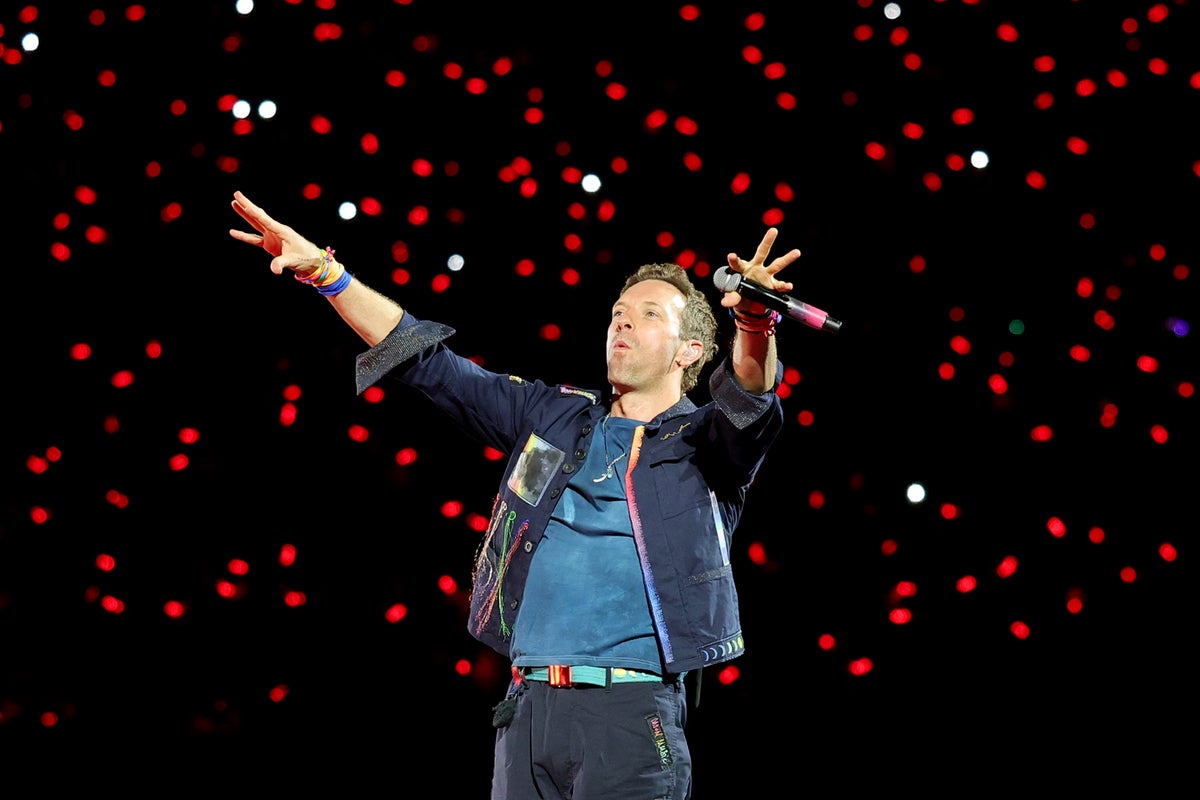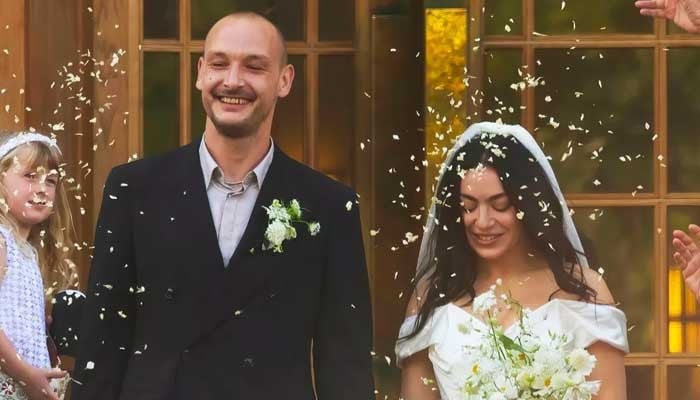The Nordic realism of Pernille | The Express Tribune

PUBLISHED
July 20, 2025
KARACHI:
Nordic thrillers are always my cup of tea — a new one on the streamer, and I’m instantly pulled in. This is probably because of the dark-ish stories, intense characters and flawless performances. The Nordic approach is to usually portray characters with depth, allowing older actors to be their age, while still enjoying life and romance.
Since for us, there is no celebrity hype around any of the actors because we are not familiar with their stars or their showbiz and entertainment world, it leaves us to absorb their acting neat, making indelible impressions on our minds of the realistic characters they play.
Pernille, what an odd name! Apparently, it is a relatively common Nordic name, particularly in Denmark and Norway, and it means rock or stone. The Netflix series Pernille, that has received four awards and nine nominations portrays a working mother, struggling with parenthood, grief, career, and dating.
With the lead character Pernille, an mind-bogglingly ordinary woman with looks neither invite attention nor resist it, played warmly and engagingly by Henriette Steenstrup, the series equally explores how an average woman living in Oslo tackles life as a daughter herself, a mother to two daughters, a child welfare worker, and someone with a rocky, often vacant love life.
Along with this is heartfelt drama, everyday life, and funny moments that are few and far as in real life, and not added as per a prescribed formula to meet the needs of a TV show. The series has been lauded for its strong performances and poignant screenplay.
You can easily recognise Pernille’s character and connect to it. Like this, there are many of us out there trying to put together jagged pieces of life in terms of challenges to do with our parents, our kids, our jobs, our love interests/spouses, our inner fears, weaknesses, struggles and secrets.
Yet, the show was criticised for too much negativity in Pernille’s life, but then this woman in her forties is shown to be resilient and courageous, and she is someone who hardly ever gives up being positive about life and its relentless demands.
Dealing with the damage discreetly, she just carries on regardless, treating every day as a new day, and being there for everyone and everything around her with polite tolerance. Steenstrup does this with a tad confused, but reassuring, earnest and sincere smile.
Apart from the culture of respecting, accepting and owning the individuals’ space, their gender identity and the inherent right to move on and embrace life, instead of sticking to social norms and dogma, and consequently being miserable or bitter about the circumstances, for viewers from our part of the world, some aspects of the show are eye-openers. The aspect that impressed me most was the nuanced portrayal of Norway’s child welfare system known as “Barnevernet.”
The Barnevernet is a huge network of services and authorities designed to protect and support children and families, with the goal to ensure that children’s basic needs are met and that they have the opportunity to grow up in safe and secure environments. Within the legal framework, the system is based on the Child Welfare Act of 1992, the Norwegian Constitution, and the UN Convention on the Rights of the Child (CRC).
The laws emphasise the importance of a child’s upbringing within their biological family, making the threshold for removing a child from home high, and the threshold for helping them low. The Child Welfare Tribunal, an administrative body decides on care orders and other coercive measures.
While parents are primarily responsible for providing care and protection for their children, the municipalities provide help and support to children, adolescents, and parents facing challenges. They may also get involved if a child needs help for other reasons, such as behavioral issues related to drugs or alcohol.
The most common type of assistance is to provide support to families within their homes to improve living conditions for children. Other measures may include counselling, therapy, parenting support, and, in more serious cases, temporary placements in foster care or institutions. Children have the right to express their views in matters affecting them, particularly when they are seven years old or older or according to their maturity.
The system acknowledges the importance of parents’ rights to family life, but the focus remains on protecting children’s best interests. The system’s authority to remove children from home, even without parental consent, has faced criticism. Some advocacy groups argue that Barnevernet has too much power and that it sometimes uses its power inappropriately.
There are many arresting scenes of the day to day routine of people working in this system in their offices, their fieldwork, their challenges, the emotional effects it has on them and how seriously they take their tasks and assignments.
Pernille is in and out of various astounding child rescue and welfare situations throughout the series, and ofcourse being a sensitive person, the situations that she encounters on a daily basis impact her emotionally. As depicted in the show, if there is a situation or and irregularity reported to the police and a child is involved, the police immediately notify child welfare and they reach the trouble site for emergency rescue, following it up until the situation has been sorted out.
Comedy is not the hallmark of Scandinavian shows, but Pernille has just the right blend of humour. The award-winning series is also much loved in its home country of Norway and rightly so. It is commendable how the production team makes mundane, everyday life warm, witty, insightful and entertaining.
Once you start watching, as in all addictive serials, the characters grow on you in an effortless exercise, be it Pernille’s outspoken daughters Sigrid (Ebba Jacobsen Oberg) and Hanna (Vivild Falk Berg), her father Ole Ohan (Nils Ole Oftebro) who has come out late in life, her stable and sincere boss Yngvar (Oystein Roger), her besties or her boyfriend Bjornar (Gunnar Eiriksson) who waxes and wanes regularly. The five seasons that may seem a lot at first just whiz by.
Through the five seasons, you follow Pernille’s journey with her family. Her relationship with her daughters, as they grow up, is central to this. Pernille remains attentive, loving and caring to everyone around her, which includes traumas, tantrums and drama to do with her daughters, how she mostly seems to excel at matured tolerance and sometimes looks as peeved or perplexed as a parent from any part of the world. To us, Pernille’s daughters seem a little disrespectful but perhaps European norms are different, and difficult for us to relate to.
Her relationship with her gay father is well done and credible. She supports him in every sphere of his life, and in an endearing moment even describes their relationship to be like one with the closest girlfriend. Pernille’s divorced husband Finn is perhaps the most irritating character and the couple’s interaction is subtle, yet powerful and integral to the story.
Is Pernille unlucky in love, or does she make a mess of her personal life because that is an area she pays the least attention to, is for the viewers to decide. Quirky characters interwoven with storylines of hardship, loss and tragedy resonate quite deeply.
Apart from subtle nudges by her girlfriends to find someone for herself, there is no societal or family pressure on Pernille to remarry after her divorce, as it would be in our culture and society. No one stigmatises her for her choices in life. I also couldn’t stop thinking how badly our country needs child welfare initiatives, policies and plans.
Not just those, they need to be materialised as soon as possible. But rescuing them from traumatising situations can only come after education is made mandatory in our country. And that is a pandora’s box that contains issues such as children out of school in Khyber Pakhtunkhwa, schools, colleges, teachers, their salaries, ghost schools and twisted narratives about education of the girl child in non-urban areas in all provinces of the country.
Pernille is more than just a Nordic drama with layered characters and thoughtful storytelling — it’s a quiet, deeply resonant exploration of what it means to live, love, and persist in the face of life’s everyday messiness.
The show doesn’t offer grand resolutions or sweeping statements. Instead, it celebrates the strength in ordinariness, the beauty in emotional honesty, and the quiet courage it takes to show up each day — as a parent, a worker, a daughter, a friend, or simply, a flawed but determined human being.
For those of us watching from afar, Pernille also opens a window into a society that treats its people, particularly its children, with a seriousness and care that feels both admirable and painfully out of reach. It subtly urges us to question our own systems — or lack thereof — and reminds us that behind every policy or welfare law lies a beating heart, a child’s future, and an adult who may just need one more chance.
As viewers, we walk away not just entertained, but moved — carrying with us the quiet imprint of Pernille’s smile, her resilience, and the thought that maybe, just maybe, we could be a little more patient with ourselves and each other.
[title_words_as_hashtags




